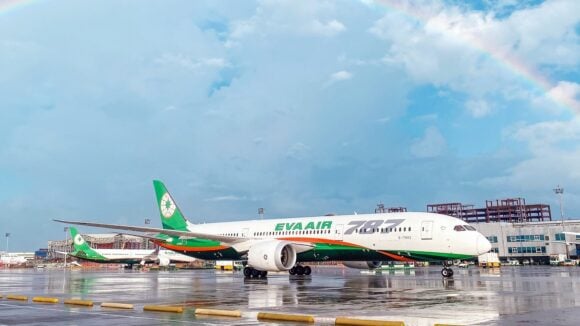
Indian aviation
If you reviewed the social media timelines of the Indian aviation ministry last week, it became clear that almost all key decision-makers were in Canada for the ICAO General Assembly, where India also received an ICAO Council President’s Certificate for its safety oversight.
However, the focus of Aviation Minister Ram Mohan Naidu, Aviation Secretary Samir Sinha, and DG Faiz Kidwai appeared to be on overseeing the manufacturing of planes and components, which the ministry has been actively promoting over the past few years.
“Visited the Airbus manufacturing facility at Mirabel, Montreal, which primarily is the assembly line for A220s,” Naidu said in a social media post with pictures of the factory tour. “The insights into aircraft production and safety protocols are thought-provoking. Airbus is already procuring certain components from India. During this visit, I impressed upon Airbus management to further enhance their manufacturing footprint in India. As many Indian carriers have aircraft in delivery pipelines, I also reiterated the importance of expediting the process to meet rising connectivity demand.”
He also visited the Bombardier factory.
“Had an insightful visit to the manufacturing plant of Bombardier Aircraft at Montreal,” Naidu noted in another post. “The plant authorities explained and showcased all stages of aircraft manufacturing, testing, and commissioning. With a large number of commercial and charter aircraft being added to the Indian fleet, it is important to prioritize more component manufacturing, MRO capabilities, and requisite skilling in India. I requested Bombardier management to explore more opportunities locally while highlighting advantages India offers, such as a large aspirational end-user population, high growth potential, availability of skilled youth, and convenient geographical location.”
While this generates significant online traction, the fact remains that global aircraft manufacturers have refused to establish a civilian aircraft final assembly line in India, as they have done in China. Airbus and Boeing have handled such questions carefully. Last year, we opined that Embraer should do this.
Airbus points out that it already has a Final Assembly Line (FAL) in India for the military C-295 (with Tata) and is establishing a helicopter FAL in Kolar, Karnataka, for the H125 — its first privately-led civil helicopter FAL in India, slated to begin production in late 2026. Airbus currently sources $1.4 billion worth of aerospace parts and services from India.
Boeing, meanwhile, has sidestepped the idea of a civil FAL. India’s Head Salil Gupte has emphasized that final assembly represents less than 10% of an airplane’s value, with the “real money” being in the design, systems, and lifecycle support. Boeing currently sources around $1.25 billion worth of products and services from India.
“We need more orders from India before the company considers setting up a final civil aircraft assembly line (FAL) in the country,” he said earlier this year, adding, “We’ll have to see how it evolves as the markets in India and around India go. In the meantime, it is all about building stepwise capability to get up to that point.”
This highlights the challenge: a full assembly line becomes a showcase. It could enable the local market to pursue its own commercial aircraft program, as China has done — something neither manufacturer may currently favor.
Even in sourcing, India still lags, contributing only 1% of the global aerospace supply chain market, according to the Aerospace India Association, led by former Airbus executive Srinivasan Dwarakanath. The association aims for India to capture 10% of the market, which is estimated to be worth $250 billion annually by 2033.
Still, of the two major manufacturers, Airbus has been more bullish about expanding in India, coinciding with growing India–France defence ties and potential further orders for Rafale fighter jets.
Interestingly, this month, the Airbus board is set to meet in Delhi for the first time for its annual off-site strategy session. It will also hold talks with Air India and IndiGo leadership, as well as meet aerospace suppliers in Bengaluru.
Such board meetings typically take place in countries with a significant Airbus manufacturing presence, such as China, and this has raised hopes for deeper future engagement.
Whether a ‘Make in India’ civilian aircraft line actually materializes soon remains to be seen — after all, that will be the actual litmus test of whether the ministry’s global engagements have borne fruit.
Views: 133



